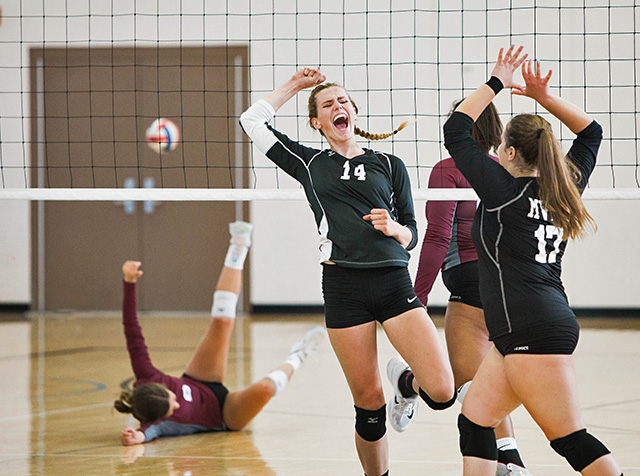
What is Sports Psychology and What Skills & Qualifications Do You Need to Become a Sports Psychologist?
Have you ever wondered what it takes to get into the minds of athletes, helping them conquer self-doubt and anxiety to achieve their best performance? Welcome to sports psychology!
This captivating field blends psychology with sports science in order to understand how mental factors impact physical performance and vice versa. But becoming an incredible sports psychologist is no easy task. It requires dedication and an array of qualifications and skills.
 psychology can lift your game
psychology can lift your gameIn this article, we’ll unravel what sports psychology is all about and explore the roadmap that lies ahead if you're considering this as your career path. Let’s get started!
What is Sports Psychology?
Sports psychology is a fascinating specialty within the broader field of psychology. In essence, it involves understanding how psychological factors can affect athletic performance and how participating in sports can influence a person's mental and emotional well-being in return.
As a psychologist, you'll delve into the minds of athletes to help them overcome challenges and achieve peak performance. Some responsibilities of a sports psychologist include:
- Communicating with coaches and families
- Helping athletes mentally prepare for competition
- Educating athletes on relaxation techniques
- Speaking to athletes at their consultations and evaluations
- Mentoring coaches on how to improve athlete’s mental state
Now that you have a basic understanding of what sports psychology is, let's look at the skills and qualifications needed to become a successful sports psychologist in your field.
The Skills and Qualifications All Sports Psychologists Need
A person can’t simply become a sports psychologist without a formal education. Here are the skills and qualifications you need to become a specialty sports psychologist in the US.
Complete an Undergraduate in Psychology
Your journey to becoming a sports psychologist starts with obtaining an undergraduate degree in psychology. This gives you a solid foundation in the principles and theories of psychology, equipping you with the tools necessary to understand human behavior in a general setting.
Some universities also offer specialized coursework or programs where you can study sports psychology online. This offers flexibility if you have other commitments or are looking for more convenient learning options. Gaining this knowledge base is essential to get a master’s degree.
Complete a Master’s Degree in Psychology
Once you've completed your undergraduate degree, the next step is to pursue a master's degree in psychology. At this stage, you can start focusing more on sports psychology.
This further coursework allows you to delve deeper into topics such as motivation theory, group dynamics, or mental health in athletes. By acquiring a more specialized knowledge and stimulating your critical thinking skills, you'll be better prepared for sports psychology.
At this point, you can start practicing as a sports psychologist without further education. However, you may want to get a doctorate or medical license to continue in this field.
Complete a PhD in Sports Psychology
Taking your studies to the doctoral level solidifies your expertise in the field. A PhD in sports psychology requires extensive research, often focusing on a particular aspect of the topic.
This could range from exploring psychological techniques to improve performance, understanding the impact of injuries on athletes' mental health, or examining how social factors influence sports behavior. After all that hard work, you can confidently call yourself an expert.
In some states, you can prescribe medication with additional training. They’ll need to complete between 1,500 and 6,000 hours of supervised clinical practice and take a jurisprudence exam.
Go to Medical School for Psychiatry
An additional route that some sports psychologists choose is to attend medical school for psychiatry. While not a requirement, it can be a significant advantage to a psychologist.
Medical training provides knowledge about neurological and physical aspects of human behavior, which can strongly complement your understanding of mental processes gained from psychology studies. Moreover, as a psychiatrist, you can prescribe medications if needed.
Develop Valuable Skills and Experience
No matter which path you choose, it’s important for you to gain valuable skills and experience throughout your journey. It’s recommended to develop the following hard and soft skills:
- The ability to motivate and encourage others
- Active listening, communication, and empathy
- Analytical thinking and problem-solving skills
- Interpersonal and observational skills
- Flexibility, adaptability, and patience
- Research skills and a methodical approach to work
While not all programs require you to work to gain experience, it can help improve your job prospects. It’s never a bad idea to pick up an internship while you’re studying.
In Conclusion…
Are you ready to make an impact in the world of sports by becoming a sports psychologist? It's challenging, but it can also be intensely rewarding. Just imagine helping athletes reach their peak performance and witnessing those moments when they overcome their mental hurdles.
Embark on this journey armed with determination, passion, and the right qualifications. Every step will bring you closer to your dream career. So dive in and start studying right away!
Related Pages
- Study Courses for Sport Psychology
- A Career as a Sports Psychologist
- Ways Sports Psychology Can Improve Athlete Performance
- Sports Courses
- Careers in Sport

 Current Events
Current Events